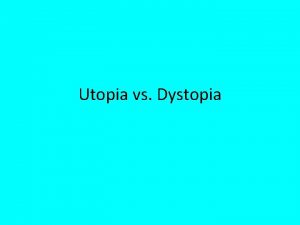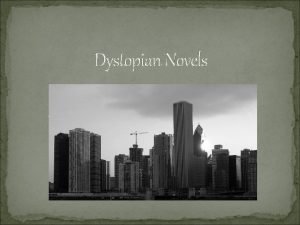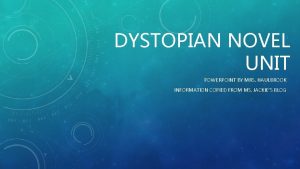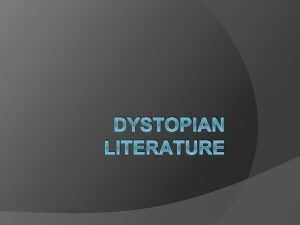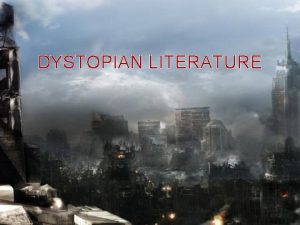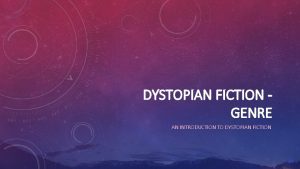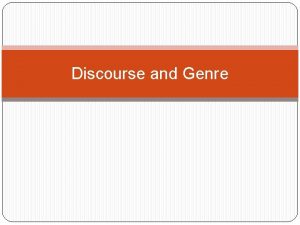DYSTOPIAN GENRE CENTURY AND NOW TH 20 DYSTOPIAN





- Slides: 5

DYSTOPIAN GENRE: CENTURY AND NOW TH 20

DYSTOPIAN LITERATURE – TOOL FOR POLITICAL COMMENTARY • First dystopian novel: We by Yevgeny Zamyatin (1921) • Analyzed Russian political environment: Lenin and Stalin • • Dark, gritty, no happy ending, no heroes Sets up the pattern for 20 th century novels afterwards • YA Dystopian (modern day) • • 1993 – The Giver by Lois Lowry 2008 – The Hunger Games by Suzanne Collins • Main character is the hero, focus on being an individual/reality, fight and win • How the genre evolves = linked to political developments happening

20 TH CENTURY DYSTOPIAN FICTION (TRENDS) • Suppressing individuality (sameness = peace) • Oppression of the arts • Control • Main character self-exploration • Female instigator (kick starts main character’s interest in selfexploration) • Focus on technology, industry, and futurism* • *Futurism: concern with events and trends of the future, or which anticipate the future

1984 – GEORGE ORWELL • “London is a grim city in the totalitarian state of Oceania, where Big Brother is always watching you and the Thought Police can practically read your mind. Winston Smith is a man in grave danger of the simple reason that his memory still functions. ” • Published in 1949 • Coined the terms: Big Brother, double think, thoughtcrime, 2+2=5, memory hole, and others. • Title was meant to give a sense of urgency to possibility of totalitarian regime.

BRAVE NEW WORLD – ALDOUS HUXLEY • “O wonder! • How many goodly creatures are there! • How beauteous mankind is! O brave new world, • That has such people in't. ” • (William Shakespeare, The Tempest) • Hint: the title is ironic • Published in 1932 • Anticipates scientific developments in reproductive technology, sleep-learning, psychological manipulation, and classical conditioning. • Considers the concept that stability is “the primal and ultimate need” if a civilization in crisis is to survive. (Bradshaw, 2007).
